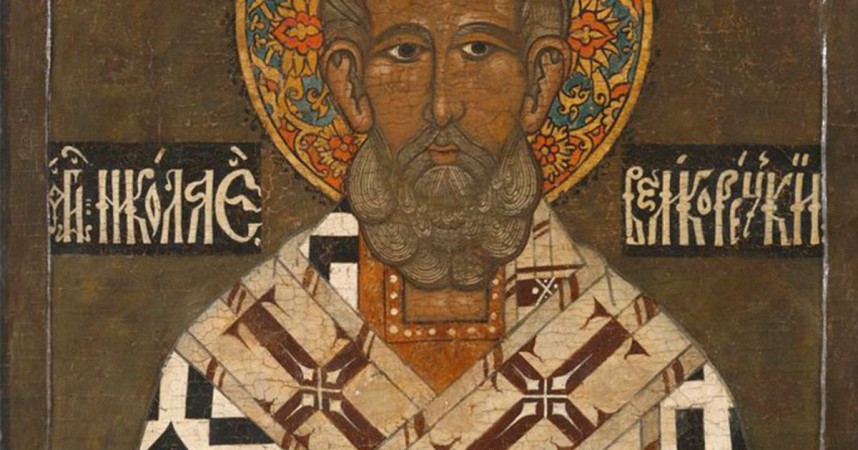Saint Nicholas and Springtime in Russia
"The work of God knows how to transform even the most senseless human actions into something good," said Patriarch Kirill in recent days, during the celebration of the feast of Saint Nicholas, who traditionally in May is associated with the promise of a good harvest for the agricultural season. And never more than today is such a blessing needed, as people hope for a new season of peace for the fields and lands ravaged by war.
Moscow (AsiaNews) – On 21 May, just as discussions were underway within the Vatican walls regarding a possible peace negotiation between Russia and Ukraine, the Russians were celebrating their "Italian" patron saint – Saint Nicholas of Bari. He is remembered with the title of Myra, the city from which he was taken by merchants from Bari – or more commonly as Nicholas the Wonderworker or Nikola Vešnyj, “Nicholas of the Springtime”.
Devotion to the saintly fourth-century bishop, to whom legend attributes a role in the Council of Nicaea 1,700 years ago, arose in the earliest days of Kievan Rus’. The "new people", baptised in the waters of the Dnipro at the end of the first millennium, perceived themselves as the people of a “new beginning” for Christianity. They felt a desire to reconnect with the roots of Jerusalem and Constantinople – places not always easily accessible due to the Crusades – and the basilica in Bari on the Adriatic coast became the main substitute. Saint Nicholas eventually became the patron of Rus’, and the most beloved saint in all of Holy Russia’s history.
In June 2016, following the historic February meeting in Havana between Pope Francis and the Patriarch of Moscow, Kirill, a portion of one of the saint’s ribs was donated and brought to Moscow. It was later venerated in a grand pilgrimage between the two feast days of Saint Nicholas: 6 December (19 December in the Russian calendar) and 8 May (21 May in the Russian Orthodox Church’s Julian calendar).
This was the last major act of mutual significance between Russia and the Vatican before their efforts toward fraternity were hindered by the dramatic years of the coronavirus pandemic and war. Hopes had been raised for a renewed embrace between Francis and Kirill, perhaps even before the relics of Saint Nicholas in Bari. In his homily for the feast, the Patriarch of Moscow recalled a principle from the “Orthodox catechism” written by the saintly Metropolitan Filaret (Drozdov) in the 19th century: “The work of God knows how to transform even the most senseless human actions into something good.” It is a sentiment of great contemporary relevance, expressing a hope to break free from the vortex of human madness seen in recent years.
In the story of the translation of Saint Nicholas’s relics from Constantinople to Bari, the Patriarch notes the paradox of “a scandalous theft, which ought not to be celebrated” – as is indeed the view held by the Greeks, who see the event as another cause of division between Orthodox and Catholics. However, “when considered in the context of all that followed,” the transfer to Bari “proved providential: otherwise, the invasions by enemies of Christianity – which led to the destruction of the Byzantine Empire – would have prevented any contact with the Holy Lands of Christianity’s origins,” of which Saint Nicholas is one of the greatest witnesses.
True, Kirill admits, “the relics today are not in an Orthodox country, but anyone may go and venerate them,” as is common practice for all Russian eparchies, each of which has a special office for organising pilgrimages to Bari.
The Patriarch also recalled how, even in the difficult years of Soviet atheism, “there was always a corner in Orthodox homes with three icons: that of the Saviour, the Mother of God, and Saint Nicholas.” Such deep devotion was not due to detailed knowledge of his life – which, despite the abundance of hagiographic literature, remains largely mysterious and distant. What truly matters, says Kirill, is that “Nicholas always answers prayers,” and this living spiritual experience “is the greatest proof that God exists and listens to us.”
The Russians commemorate the providential intercession of Saint Nicholas particularly during the May feast, praying for rain to ensure a good harvest at the start of the farming season. And never more than today is such a blessing necessary, to inspire hope for a new season of peace across the war-torn lands and fields.







.png)










